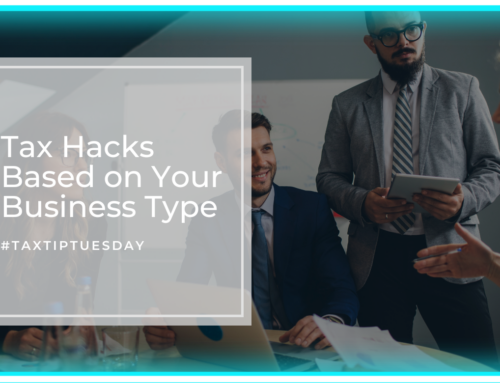Cryptocurrency and Taxes, yes you have to pay taxes on your crypto; but there are some nuances. Hi, I’m Bette Hochberger, CPA, CGMA. And on today’s Tax Tip Tuesday, I will dive into a trendy subject right now, cryptocurrency. I know my newsfeeds have been lit up like crazy; people are making a ton of money. It’s insane. And there are so many different cryptocurrencies out there. But what does it mean for your taxes? Right? What is cryptocurrency in the eyes of the law? And in the law here, we’re mainly talking about tax law and the IRS. So Bitcoin, Ethereum, Dogecoin; all these crazy cryptocurrencies that are out there. In the IRS eyes, they’re all treated the same, like property, right? So what does that mean? Well, think about stocks, bonds, things like that where you usually have to report your sales price when you sell it. And you get to say the cost or the basis of when you bought it.
And the difference is what you get taxed on, right? We call those capital gains. Well, cryptocurrency is going to work pretty much the same way. We want to think it’s like cash since it’s a currency, but that’s not what the IRS believes, unfortunately. So in that regard, it’s a little bit complicated because there are many things that you need to track. Right? So you need to keep track of your sales. You need to keep track of your mining, purchasing, and trades; all of these essential bits of information are necessary for putting together your tax return at the end of the year.
Many people think that cryptocurrency is very anonymous and that it’s not tied to you. And really, that’s not true. The sales of cryptocurrency have to be reported to the IRS. And if you don’t report those sales and the IRS gets a message that you had those sales, that they’re connected to you, you’re going to have a mismatch in the IRS system. And they’re going to come to you, and they’re going to say, “Hey, we know you had sales. You didn’t report it.” Right? Can that rise to the level of tax evasion? Well, I guess it depends, right? Because tax evasion is an illegal activity where you deliberately avoid paying taxes.
So if you’ve got an extensive portfolio of some cryptocurrency and you sell it, and you’re like, “You know what? I don’t think anyone’s going to know. Who’s going to find me?” Well, very likely, the IRS will find you. And if it’s a super large amount of money, they could go after you for tax evasion. So super important, like everything in the tax world, you got to document it all, keep meticulous records as best you can. And utilize software out there. There are many great wallets and reporting apps and things that will help you keep track of those sales on that basis.
What do we think is going to happen in the go forward? Well, when we had a transition from the Trump presidency to the Biden administration, pretty much most tax people figured, “Well, that’s probably it for low capital gains tax rates.” So I’m pretty sure I can’t say 100% certainty, but my prediction is that those capital gain tax rates will go up. Probably all tax rates are going to go up. But specifically, I think the capital gains rates are going to go up. So if you are investing in crypto, if you’re going to hold it for less than a year, more than a year, whatever it is, you need to be prepared and figure out what income bracket you’re in and how much tax that you’re going to pay on those sales. And expect that if you need to sell it, you probably want to sell it in 2021 and not wait.
Unless the government decides to go and retroactively change tax laws again, then I don’t know. There’s no good planning for that. Now, what about Miami? Right? Miami is such a great place to be in South Florida. But the Miami mayor, Mayor Suarez, actually wants Miami to become a hub of crypto. It would be such a great thing because we have so much tech going on here. And we are already used to dealing with a lot of international currencies and international commerce, and even international taxes. So I don’t think it would be that big of a stretch for #MiamiTech to dive in and become a massive hub for cryptocurrency. The other appealing thing to make crypto such a big Miami thing is Florida has no income tax, right?
So if you live in a high-tax state like New York or California, if you sell that extensive crypto portfolio, oof, you’re going to pay a lot in state taxes. Right? So if you want to reduce those taxes and not have any state taxes, you can move to Miami. Join our tech world and our crypto hub, and save a lot of money on your taxes. So I hope that that clears up some confusion about crypto. Congrats to everyone out there who’s making a ton of money. Don’t forget your taxes. If you take about, say, 15% right off the top when you sell, put it in another bank account and know that every quarter you got to pay on your taxes, you won’t have a problem come next April because taxes are delicate as long as you’re prepared for them. That’s it for me today. And we’ll see you next time.







